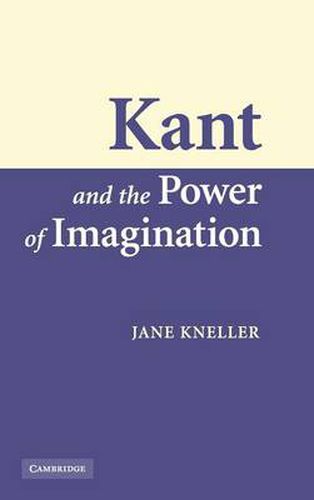Readings Newsletter
Become a Readings Member to make your shopping experience even easier.
Sign in or sign up for free!
You’re not far away from qualifying for FREE standard shipping within Australia
You’ve qualified for FREE standard shipping within Australia
The cart is loading…






In this book Jane Kneller focuses on the role of imagination as a creative power in Kant’s aesthetics and in his overall philosophical enterprise. She analyzes Kant’s account of imaginative freedom and the relation between imaginative free play and human social and moral development, showing various ways in which his aesthetics of disinterested reflection produce moral interests. She situates these aspects of his aesthetic theory within the context of German aesthetics of the eighteenth century, arguing that Kant’s contribution is a bridge between early theories of aesthetic moral education and the early Romanticism of the last decade of that century. In so doing, her book brings the two most important German philosophers of Enlightenment and Romanticism, Kant and Novalis, into dialogue. It will be of interest to a wide range of readers in both Kant studies and German philosophy of the eighteenth and nineteenth centuries.
$9.00 standard shipping within Australia
FREE standard shipping within Australia for orders over $100.00
Express & International shipping calculated at checkout
In this book Jane Kneller focuses on the role of imagination as a creative power in Kant’s aesthetics and in his overall philosophical enterprise. She analyzes Kant’s account of imaginative freedom and the relation between imaginative free play and human social and moral development, showing various ways in which his aesthetics of disinterested reflection produce moral interests. She situates these aspects of his aesthetic theory within the context of German aesthetics of the eighteenth century, arguing that Kant’s contribution is a bridge between early theories of aesthetic moral education and the early Romanticism of the last decade of that century. In so doing, her book brings the two most important German philosophers of Enlightenment and Romanticism, Kant and Novalis, into dialogue. It will be of interest to a wide range of readers in both Kant studies and German philosophy of the eighteenth and nineteenth centuries.